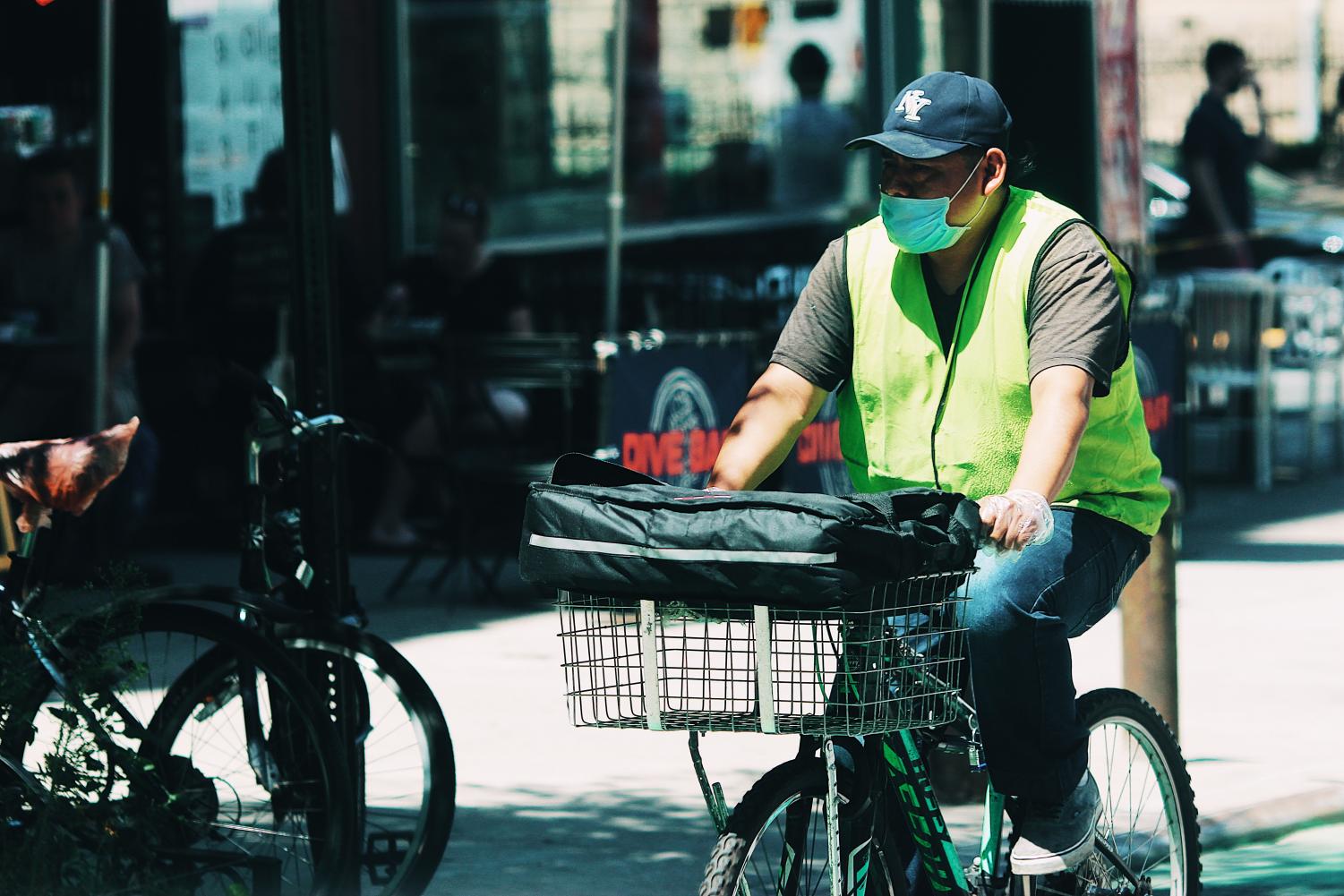The streets were quiet, void of any usual traffic. There was an eerie calm all around me as I drove to work. It seemed as if the entire world was sleeping. Most Monday mornings consisted of a busy commute to work, dodging an endless stream of cars and trucks along Imperial Highway. However, it all stopped. Endless changes hit us. Wear these masks, don’t forget your gloves, stand 6 feet apart. The new, strange COVID-19 changes were difficult to adjust to in the beginning.
During the early days of the pandemic, lockdowns affected people across the globe. Some people suddenly found themselves without jobs, while others had to quickly adjust to a remote-style of work. However, while time stood still for many, essential workers continued their trek to work in the midst of fear and uncertainty.
As an essential worker, it was surreal driving to work at a fast food restaurant when the rest of the working world remained at a standstill. While restaurant dining rooms were closed, the drive through never stopped spinning.
Personally, I learned to be thankful for work. There is a certain value in showing up to work each day when the world seemed darker than ever. As a college student, this season emphasized the importance of discovering “essential” work in any career path and being able to adapt to changing jobs during difficult seasons, like natural disasters or pandemics.
ESSENTIAL LESSONS FOR COLLEGE STUDENTS
When it seemed like our world stopped spinning, what jobs were left? According to the Pew Research Center, 25% of Americans lost or know someone who lost their job due to the coronavirus pandemic, with half of those remaining unemployed. The University of Minnesota reports that the 14.7% unemployment rate of April is the highest that the United States has faced since the Great Depression.
We are faced with this sobering reality: it is immensely crucial to find a job that will not be considered “unessential.” But how can we reconcile this with our dreams and goals in life, if they are labeled “unessential”? Should we still strive for the stars, or shift gears?
With that in mind, it is wise to pick and study a degree that can provide solid work opportunities for you after graduation. Consider jobs that would most likely be deemed “essential” and for jobs that may not be, have an attitude of adaptability so that you can roll the punches of life, still being able to provide for yourself and your family.
ESSENTIAL LESSONS FOR WORKERS
There was an interesting result that came from labeling jobs as “essential” or not. Some essential jobs were esteemed in society—like those in the medical and law enforcement fields. However, there were many low-income jobs that were the pulse that kept the American economy beating. These jobs consist of fast food workers, auto mechanics, garbage collectors and grocery store workers. These Americans continued to work in the middle of a pandemic, keeping our homes stocked and world spinning.
The pandemic highlighted many jobs that may often be looked down upon—simple jobs, yet jobs that were vital in keeping our country afloat. We were able to see how low-wage jobs are vital to our economy and to our way of life.
Non-essential jobs are still important. Every season of life is different. Our society can only flourish and grow when people pursue all sorts of dreams and jobs—this is the American dream, essentially. You can start a small business, grow in the ranks of your organization, and have the ability to be brave and try new things. But the pandemic shook the very core of those hopes and dreams, but as a society and for individual sustainability, the foundation of essential jobs should be secured so that we can rebuild fallen blocks of ambition.
YOU ARE ESSENTIAL
The world as we know it has been changed forever. We are called to be good stewards and a part of doing so is working hard and helping others when they need it. We must do what we can to find good jobs and put our heart into it—a heart that is full of thanksgiving and praise. God created us to work, whether our calling is deemed “essential” or not. Even in the midst of turbulence and uncertainty, we have hope. “Let us hold fast to the confession of our hope without wavering, for He who promised is faithful,” Hebrews 10:23 reminds us. God is faithful to provide our needs. We must remain wise and have a heart of hope as we trust in him.












